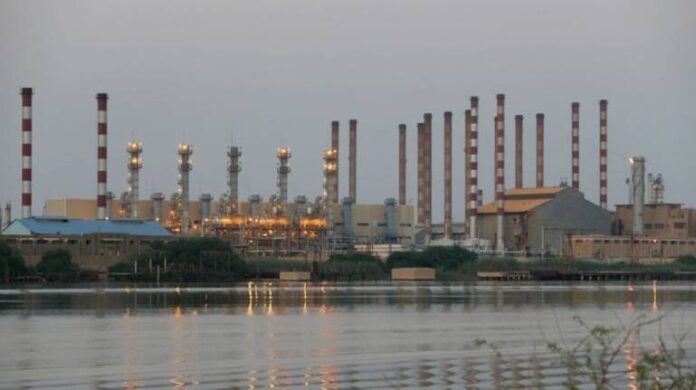ISLAMABAD: The Cabinet Committee on Energy (CCoE) will review the new oil refinery policy draft as the federal cabinet’s economic coordination committee (ECC) has advised the petroleum division to get CCoE’s nod in this regards prior to presenting the matter before ECC.
According to sources, petroleum division has tabled new oil refinery policy draft before the ECC and sought its approval on new refinery policy 2021. However, Minister for Planning and Development Asad Umar raised concerns and requested ECC to refer the matter of new oil refinery policy to CCoE.
The next meeting is likely to be held after Muharam 10.
As per details, the petroleum division in an apparent bid attract investment in the oil refining sector after consulting the concerned stakeholders had proposed numerous incentives in the new oil refinery policy 2021.
Similarly, it was estimated that that the new oil refinery policy would attract investment in the oil refining sector by offering tax rebate to the local and foreign investors for up-gradation and establishment of new deep-conversion refineries. Likewise, import duty on motor gasoline from 5 per cent to 10pc, and diesel from 13pc to 10pc would be applicable as tariff protection for refineries, effective from January 1, 2022 to December 31, 2026.
There would be a 10-year income tax holiday for up-gradation, modernisation and expansion of the existing refinery projects, besides a 20-year income tax holiday for all new deep-conversion refinery projects of a minimum capacity of 100,000 barrels per day (bpd).
As per the policy, the product pricing formula of refineries would be based on true import parity price, while there would be zero duty on import of crude oil from fiscal year 2023-24 (FY24).
The policy would also offer exemption from customs duties and other levies on the import of any equipment and machinery for up-gradation and establishment of new oil facilities whereas there will be no restriction on the selection of equipment, technology or process other than the fact that it must be deep conversion refinery.
However, no new hydro-skimming refinery will be allowed to be installed in the country.
Infrastructure such as Single Point Mooring (SPM), Single Bouy Mooring (SBM), jetties, subsea/land pipelines, oil terminals, and tank farms will be treated as separate projects and the incentives shall also be applicable to these projects. Wherever applicable, separate licenses will be obtained for the above mentioned Infrastructure from the relevant authorities.
The government will not provide any product off-take guarantees. Refineries will be allowed to sell products to any marketing company including their own affiliates in marketing and distribution. However, import of finished products by OMCs will be limited to only projected deficit in accordance with provisions of Rule 35(g) of the Pakistan Oil Rules 2016, ensuring uplifting of local refined products first.
Locally produced crude will be allocated to the closest refinery that can handle crude with such specifications. Once allocated, the same may not be cancelled if a new refinery comes up closer to the crude source, unless mutually agreed among the existing user, new user and the Ministry of Energy.
Refineries will be allowed export of surplus petroleum products, or products with specifications that do not have local demand under the intimation to OGRA and MEPD.
Currently, there are five players operating in the oil refining sector in Pakistan including, Pak-Arab Refinery Limited (PARCO), Attock Petroleum Limited (ARL), National refinery Limited (NRL), Pakistan Refinery Limited (PRL) and Byco Petroleum Pakistan Limited (BPPL). All of the refineries are hyrdoskimming refineries, except for PARCO which is a mild-conversion refinery.
Four out of the five refineries operating in Pakistan are using old technology and even the fifth one, PARCO, is now more than 20 years old. Despite being integral to the growth of the economy, no new refinery could materialise for more than a decade and only two refineries have been added in last 40 years, including PARCO, 60pc of which is owned by the government.
Pakistan’s local refineries are the backbone of heavy industrial development and are intrinsically connected to defense and energy security needs of the country. They have a pivotal role in the energy supply chain and economic development of Pakistan.
The product slate typically comprises of Naphtha, Motor Gasoline (MS), High Speed Diesel (HSD), Furnace Oil (FO), Kerosene, Jet fuel (JP-1&JP-8), High-Octane Blending Component (HOBC), Liquefied Petroleum Gas(LPG) and Light Diesel Oil (LDO).
Pakistan’s oil refining capacity is about 450,000 barrels per day (bpd), equivalent to 20 million tons per annum.
Historically, local refineries have supplied about 60pc of country’s requirements of diesel, 30pc of motor gasoline and 100pc of jet fuel for defense. The rest is imported as refined products.

























Great
Fantastic
Come on
Nice and Smooth
Kia bat ha Pak
Keep up Going
Quite Great
Perfect
Thumbs up